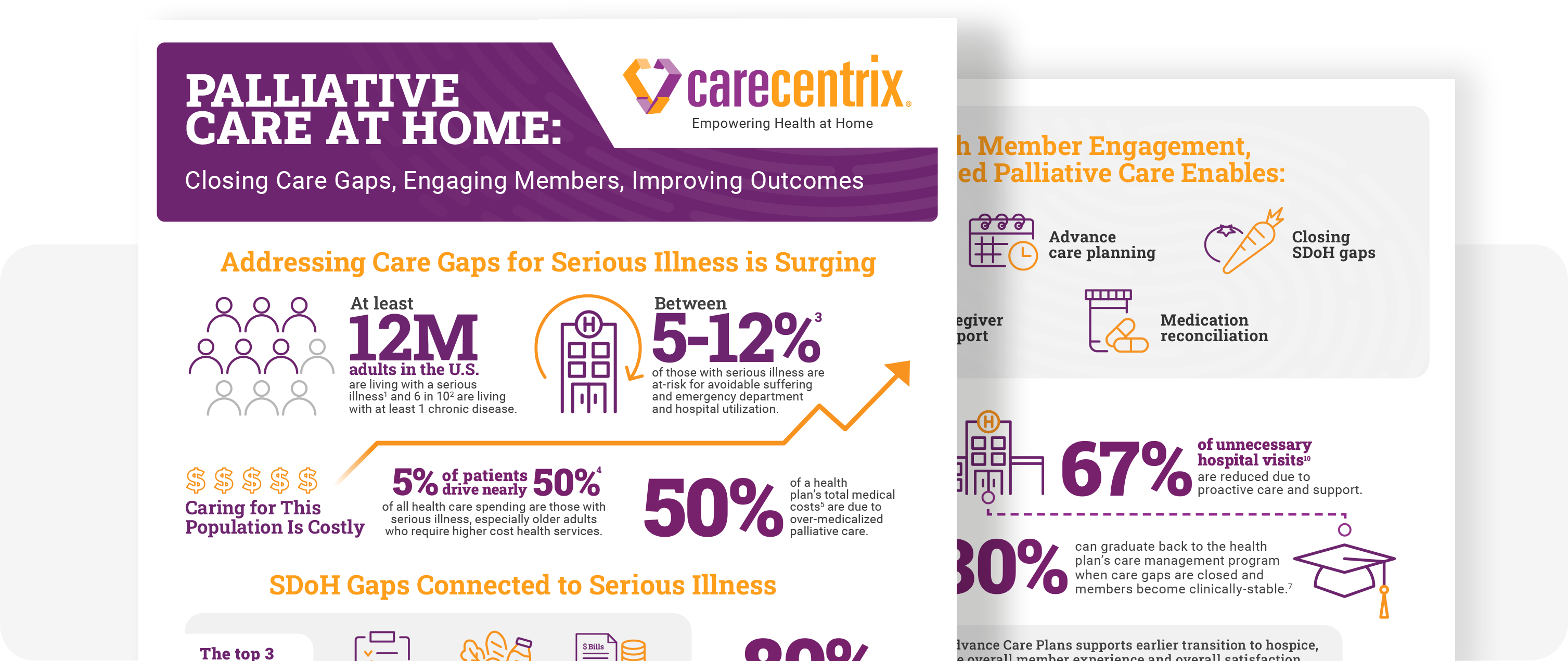With serious illness care being a highly uncoordinated part of healthcare, how can health plans use innovative strategies to better serve their members?
Looking at where we are today, many people will need serious illness care in their lifetime or experience a friend or family member who needs this type of care. In fact, according to a 2019 study from the Center to Advance Palliative Care, more than 12 million Americans need this kind of care, which is projected to increase as the senior population ages and requires more intensive care. That’s why it’s more important than ever to get serious illness care right for the patients of today and tomorrow.
3 Ways to Improve Your Serious Illness Care Strategy:
Advance Care Planning
All too often, families and patients are only first engaged in the advance care planning process once a crisis has begun. As a result, patients receive an uncoordinated patchwork of care that often doesn’t align with their wishes or needs and leaves families rushing to make critical decisions at a time when they should be focused on supporting their loved ones.
At CareCentrix, we solve for this reactive approach by communicating with and educating patients and caregivers, discussing goals of care and developing care plans that account for potential future challenges, leveraging analytics to identify and meet each individual’s needs, and setting them up for informed care decisions.
Identifying Social Determinants of Health (SDoH)
In addition to careful planning, ensuring that patients have access to the resources they need at home is critical to generating positive outcomes. It is important to understand where the patient is medically, but also socially, psychologically, and economically. No matter how good the medical care is, the patient will struggle if they don’t have transportation to their appointments or food to nourish themselves.
At CareCentrix, our predictive analytics and early engagement helps to uncover and address unmet medical, emotional, and social determinants of health (SDoH) needs for seriously ill people and their caregivers, we extend the reach of palliative care and support in the home to reduce potentially avoidable, unwanted, and expensive treatments and care to enable a better quality of life.
We also take a team approach to serious illness care in our program, including nurses who can focus on clinical needs and social workers who focus on social needs to ensure the whole person is being cared for.
Better Care for Caregivers
Providing the right level of care for individuals with a serious illness requires a focus on not only the patient, but also their support network. However, all too often, caregivers lack the knowledge and support that they need to best care for the care recipient. As a result, many caregivers feel overwhelmed, isolated, and burnt out. Caregivers provide critical services, so it’s important that they have the tools that they need to be successful.
We consider the caregiver when developing a care plan, and provide helpful resources, tools, and connections with local support groups to guide them through the process of helping their loved one.
As one example, CareCentrix was able to support a member who we’ll call Liza, a 59-year-old woman with brain cancer, as well as her husband, Harry, who was caring for her. Like many patients, Liza had trouble managing her symptoms, and was unsure of her goals for her care. Both Liza and Harry had trouble coping with her diagnosis.
After identifying the couple, CareCentrix conducted an intervention, bringing in a registered nurse and social worker to start making visits to their home, meeting with Liza and Harry separately to understand their individual needs. The social worker noticed that Harry needs extra help, so they begin providing psychosocial support and educating him on how to best support Liza’s goals and needs.
As a result, Harry regularly implements coping strategies that he learned to deal with his wife’s illness, he feels less stress as a caregiver, and there is less tension between the couple overall, all while Liza’s symptoms recede.
Learn more about our Serious Illness Care at Home solution and how we can help improve your strategy to enable a better quality of life for your members aging at home.





